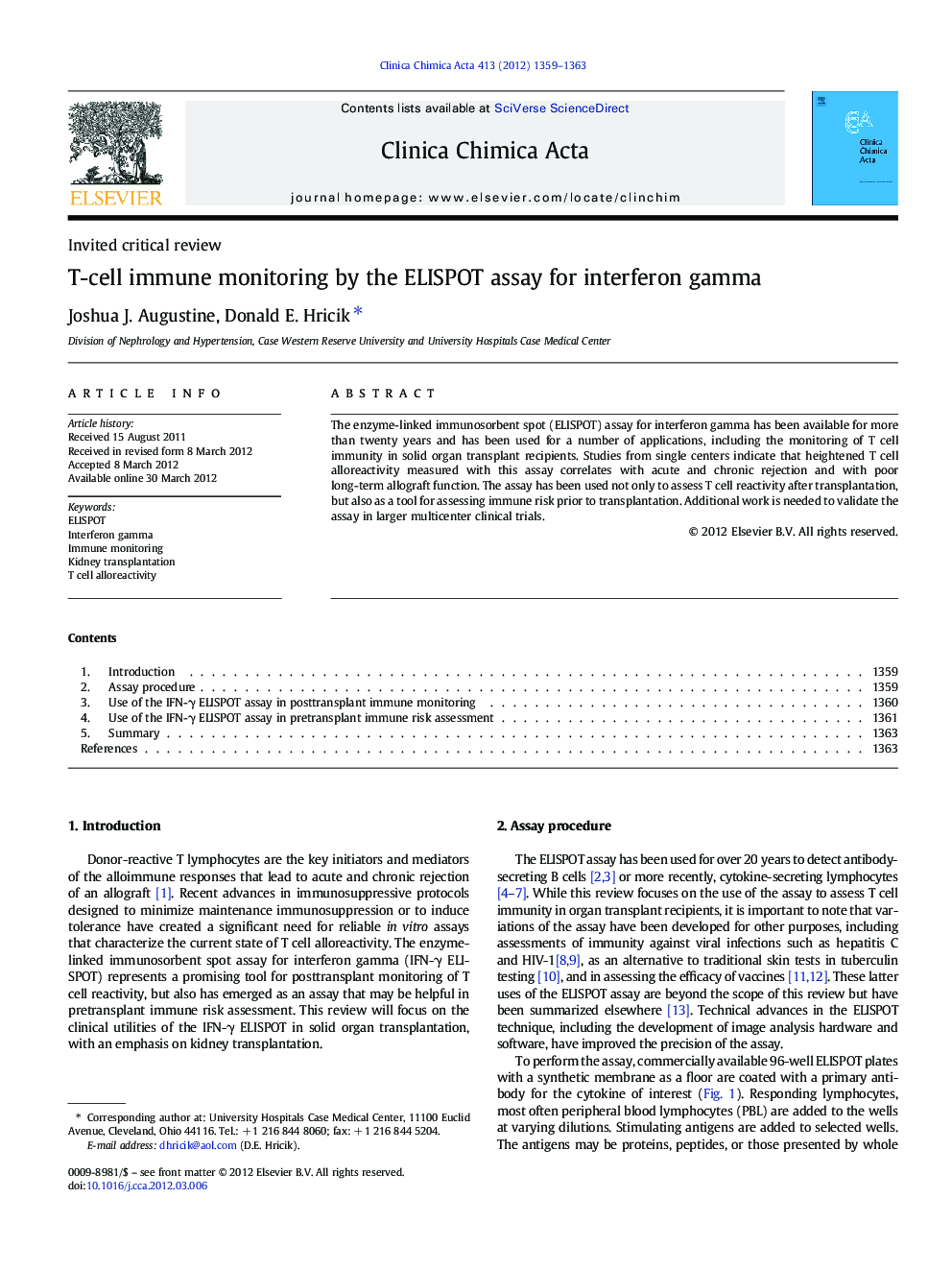| Article ID | Journal | Published Year | Pages | File Type |
|---|---|---|---|---|
| 1965906 | Clinica Chimica Acta | 2012 | 5 Pages |
The enzyme-linked immunosorbent spot (ELISPOT) assay for interferon gamma has been available for more than twenty years and has been used for a number of applications, including the monitoring of T cell immunity in solid organ transplant recipients. Studies from single centers indicate that heightened T cell alloreactivity measured with this assay correlates with acute and chronic rejection and with poor long-term allograft function. The assay has been used not only to assess T cell reactivity after transplantation, but also as a tool for assessing immune risk prior to transplantation. Additional work is needed to validate the assay in larger multicenter clinical trials.
► Using donor cells as stimulators, the ELISPOT IFN-γ assay reflects donor-specific alloreactivity. ► High frequencies of IFN-γ producing T cells early after transplant correlate with poor graft function. ► A positive pretransplant donor-specific ELISPOT IFN-γ assay correlates with acute rejection. ► Alloreactivity based on the ELISPOT IFN-γ assay increases with exposure to hemodilaysis.
